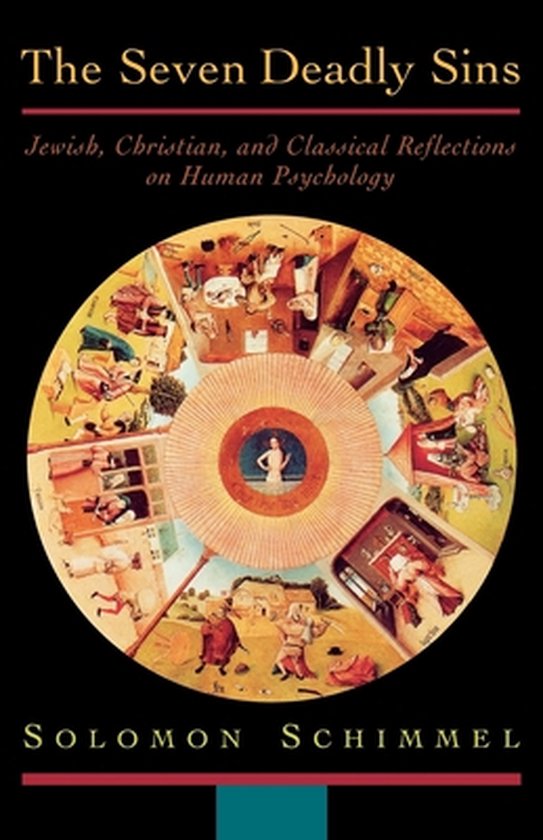
The Seven Deadly Sins
Draws on the psychological insights provided by the Hebrew Bible, the Gospels, Aristotle, Maimonides, Aquinas and others to show what we can learn from their teachings about the relationship between virtue and psychological well-being and vice and emotional distress.
All of us are engaged in a personal, ongoing battle with sin and vice. The seven deadly sins - lust, greed, envy, anger, pride, gluttony, and sloth - are our main antagonists in this struggle. They are primary causes of unhappiness and immorality, and because of their pervasive nature, have been of perennial interest to religious thinkers, philosophers, dramatists, and poets. In The Seven Deadly Sins, Solomon Schimmel explains why psychology must incorporate many of the ethical and spiritual values of religion and moral philosophy if it is to effectively address the emotional problems faced by modern men and women, be they believers or agnostics. Drawing on the psychological insights of the Bible, Aristotle, Maimonides, Aquinas, and Shakespeare, among others, he shows how all of us can learn from them about the relationship between virtue and psychological well-being and vice and emotional distress. This insightful and fascinating work guides us to master our passions rather than be enslaved by them so that we can become more humane and build a happier, caring society.
All of us are engaged in a personal, ongoing battle with sin and vice. The seven deadly sins - lust, greed, envy, anger, pride, gluttony, and sloth - are our main antagonists in this struggle. They are primary causes of unhappiness and immorality, and because of their pervasive nature, have been of perennial interest to religious thinkers, philosophers, dramatists, and poets. In The Seven Deadly Sins, Solomon Schimmel explains why psychology must incorporate many of the ethical and spiritual values of religion and moral philosophy if it is to effectively address the emotional problems faced by modern men and women, be they believers or agnostics. Drawing on the psychological insights of the Bible, Aristotle, Maimonides, Aquinas, and Shakespeare, among others, he shows how all of us can learn from them about the relationship between virtue and psychological well-being and vice and emotional distress. This insightful and fascinating work guides us to master our passions rather than be enslaved by them so that we can become more humane and build a happier, caring society.
| Auteur | | Solomon Schimmel |
| Taal | | Engels |
| Type | | Paperback |
| Categorie | | Religie, Spiritualiteit & Filosofie |




